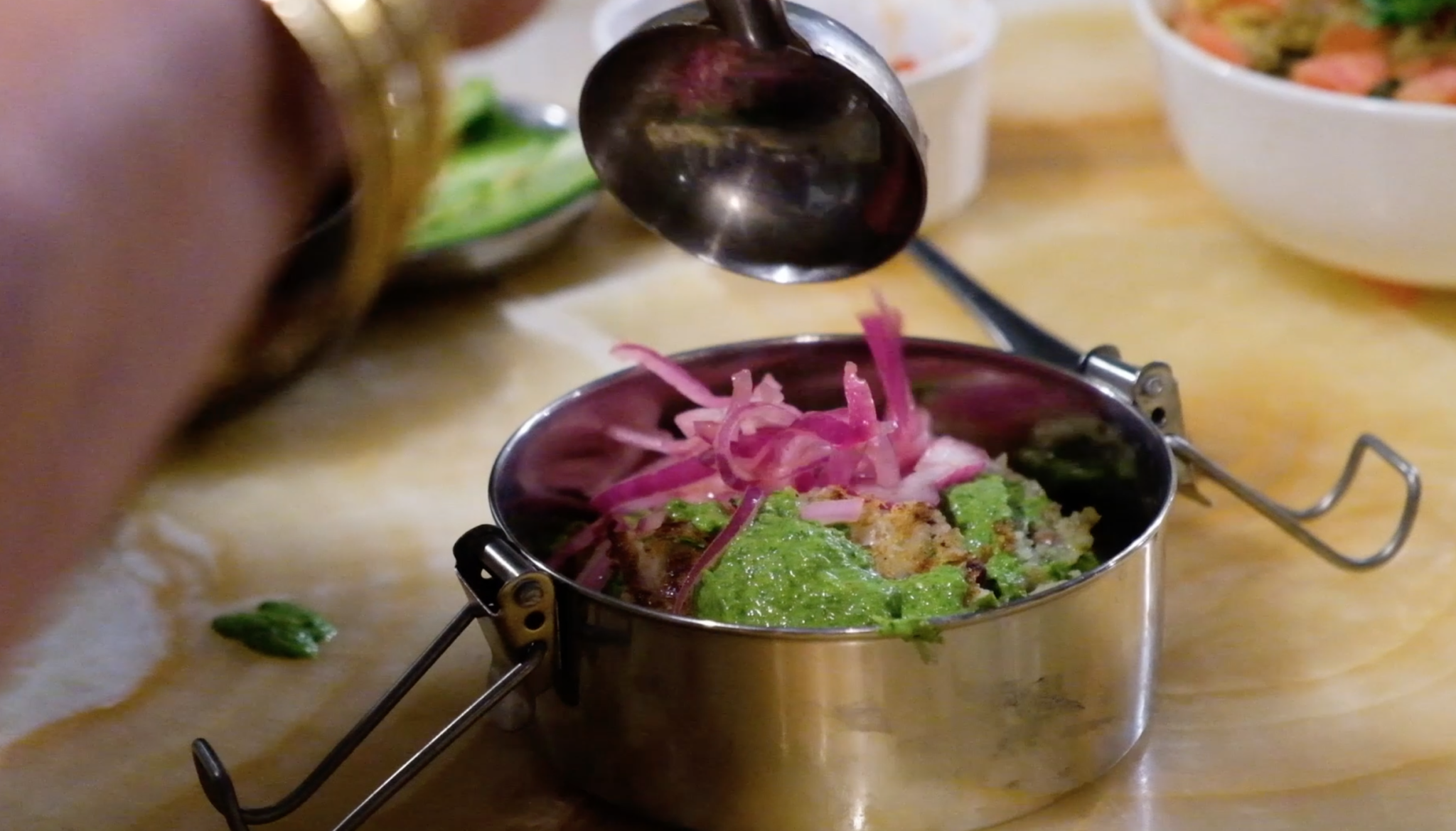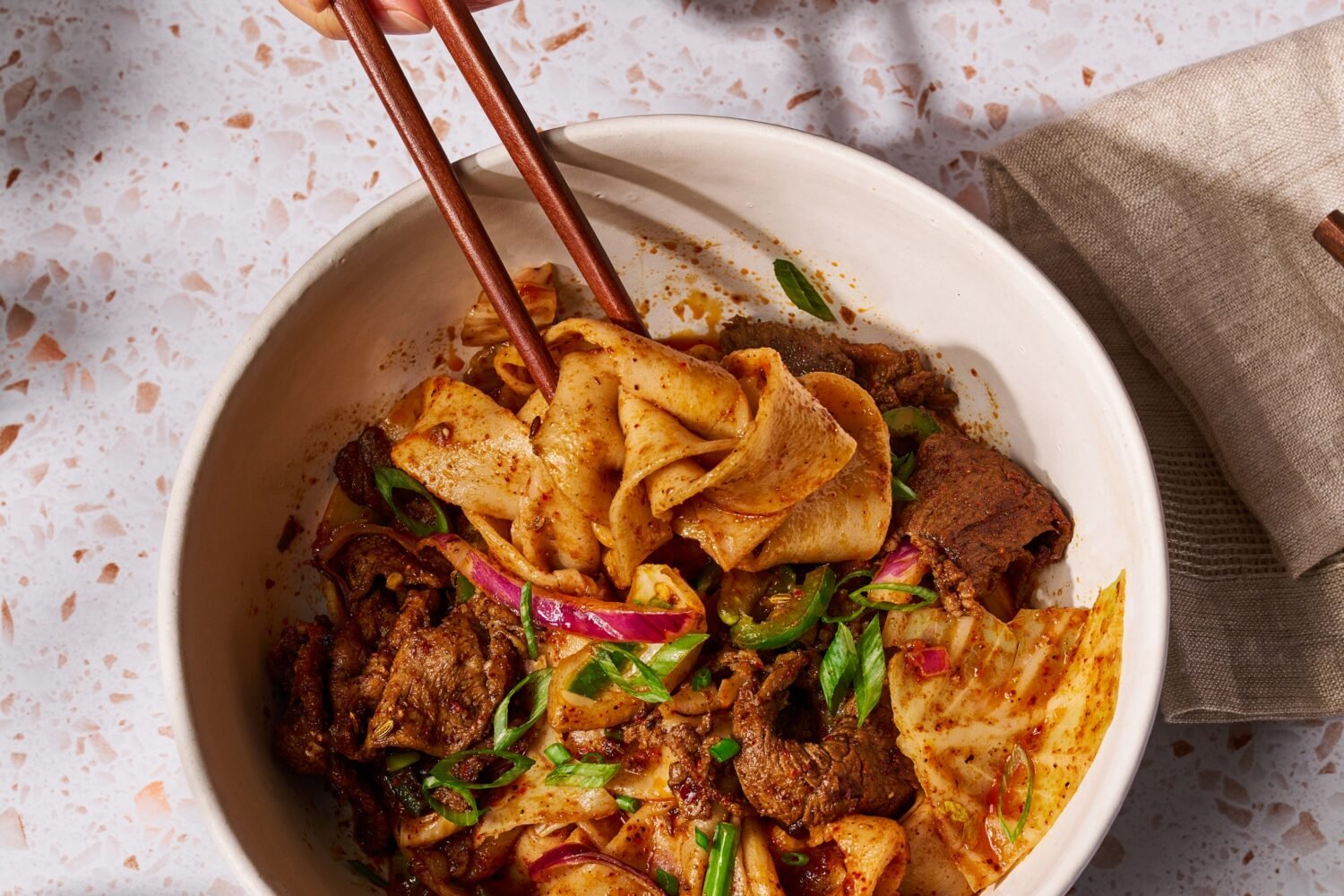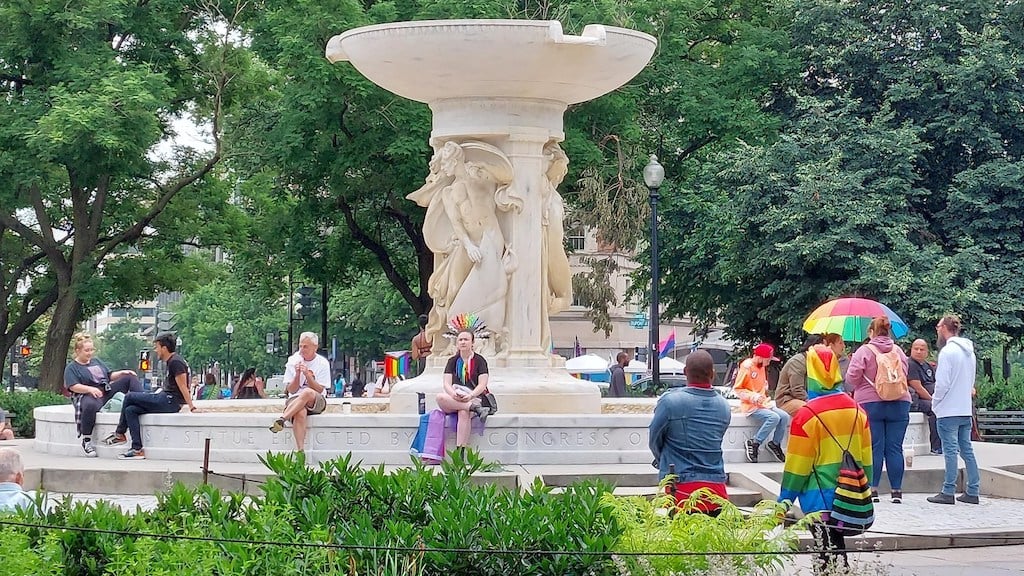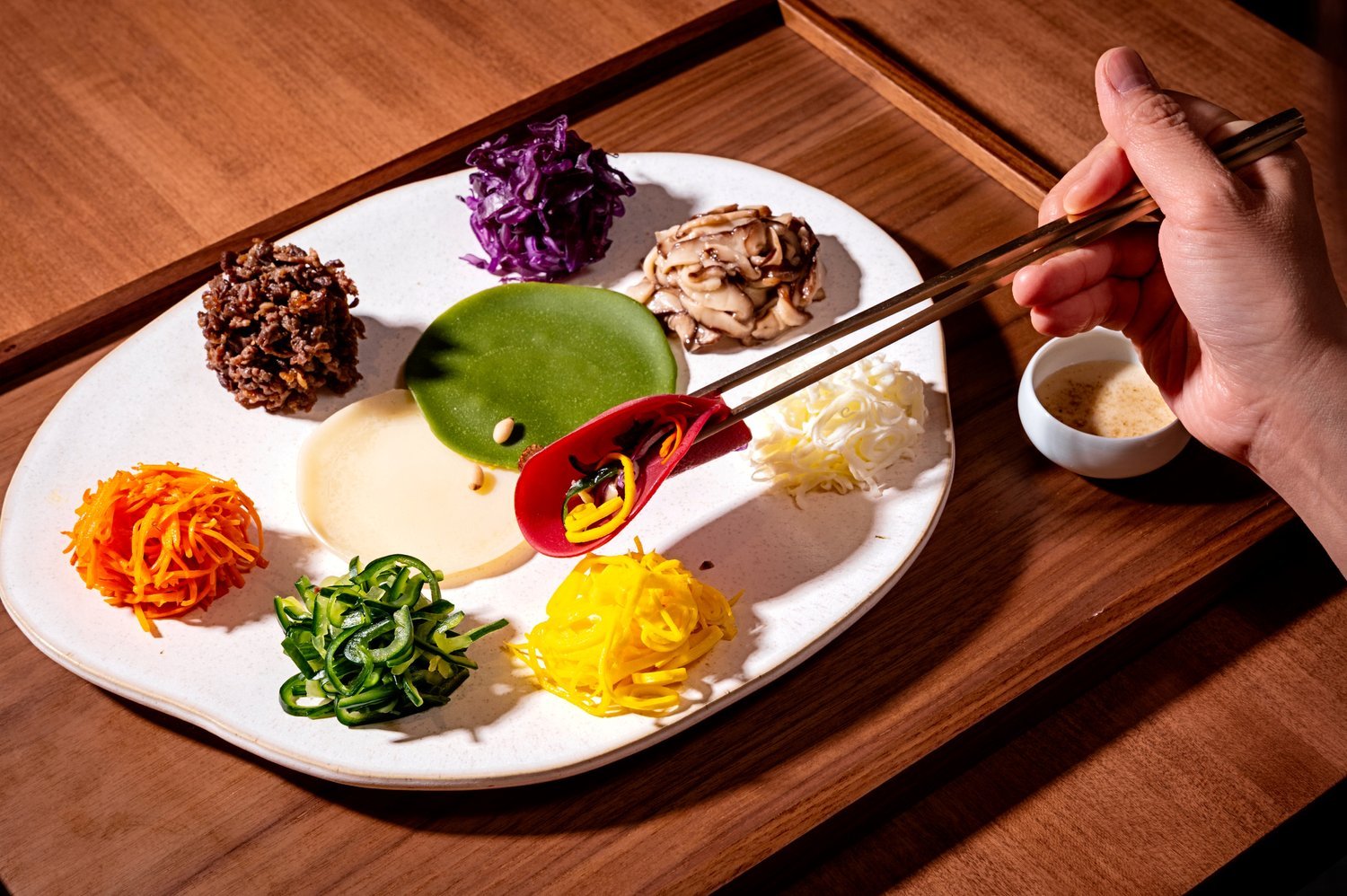For about three months last fall, the Dupont Circle Indian restaurant Pansaari tried delivering food to customers via Uber Eats. But the homestyle cooking, where a single meal might involve rice, a curry, several side dishes, a dessert, and a myriad of sauces—all of which are not necessarily meant to be mixed together—required six containers for a single order. “I couldn’t sleep with my conscience at night, knowing that all that plastic would be thrown away,” says chef Rano Singh.
So Singh and Pansaari then-co-owner Ashwin Mutthiah turned to containers that are an everyday vessel in India, if an uncommon sight in the US: the stacking metal containers known as tiffins. In Mumbai, deliverymen in white hats called dabbawallahs zip around the city on bicycles to deliver more than 200,000 tiffins filled with home-cooked meals to schools and office buildings each day. Each tier of the tiffin holds a different part of the meal—rice, vegetables, protein, sometimes extras like little pickles—that can be put together however you see fit.
In March, Pansaari launched a tiffin service, which was initially available only to a small group of beta-testers but is now open to anyone who wants to try it. Customers select the type of meals they want online (meat or two types of vegetarian) and the frequency with which they want to pick it up (four, eight, or 12 times a month). The food is made fresh and ready for pick-up during lunch and dinner hours.
Prices vary depending on the pick-up frequency and the type of tiffin. A small (one serving) paneer/vegetable tiffin, the most popular kind, costs between $10 and $13. (It’s cheapest for the 12 times per month plan). A larger (two servings) tiffin of the same type costs between $20 and $25. The halal meat option costs an extra $2.
“Whenever you’re coming to pick up your next tiffin, you drop off your dirty one, we clean it and wash it and it’s ready to go for the next person,” says Mutthiah.
It’s a service that creates as little waste as possible and hews closest to practices back in India, which is right where Singh wants Pansaari to be.
“Maybe one day we will be able to have a delivery service, with the men in white hats on bicycles,” she says.
















